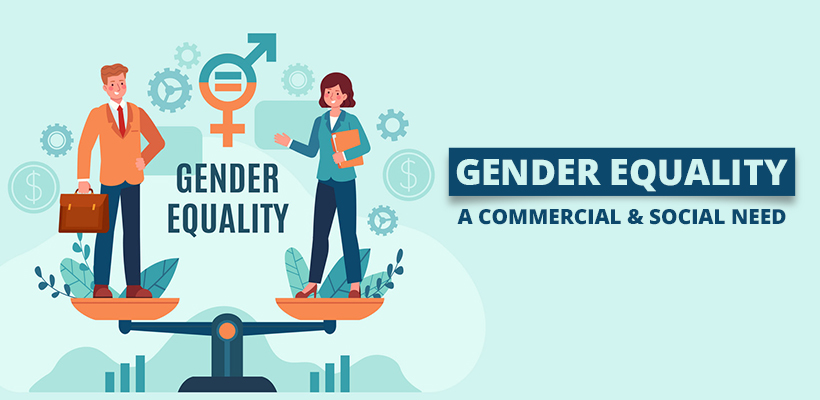“I am not the woman president of Harvard; I am the president of Harvard.”
Drew Gilpin, the 28th president of Harvard University, USA wrote this quote based on her experience in the business world. Because of her background as a historian, many people wondered what that had to do with being a university president.
It was said that she can’t deal with the financial problems at Harvard. But she has finished her term and worked to make it easier for students from all backgrounds to get into Harvard University as well as expanded the University’s international footprint.
We just celebrated International Women’s Day on March 8th, but what we really get is a question mark. Still, we need to do a lot more to get rid of gender bias in our country.
Discrimination against women is the most common and long-lasting form of inequality. This includes gender-based violence, economic discrimination, reproductive health inequalities, and harmful cultural practices, among other things. There has been a lot of evidence that women have been believed to be less important than men since the beginning of civilisation. People in almost every country, no matter how progressive they are, have a history of mistreating women.
In today’s corporate world, almost all women have to deal with gender bias. The glass ceiling between corporate management bodies and boardrooms is still very high, and wage differences still exist.
In the most visible way, money is the reason for the difference. It says that women make 26% less money than men for doing the same amount of work. During promotion cycles, the prejudice also spreads to more people.
Women are believed to be less good at managing teams or even themselves when things get stressful.
Because qualified women aren’t given the chance to move up, only 4% of C-suite leadership jobs are held by women. This is because even less qualified men get the chance. Some of the top private universities in India for MBA train students to take on more leadership roles by enhancing their leadership and management skills.
Women who are just married, pregnant, or back at work after having a child are usually put on the bench.
Most women say that managers are biased. They say that even in the same levels or bands, there are different standards and expectations for different genders.
In addition, most women are the main caretaker at home, which means they have a lot of responsibilities. Because of these reasons, most women leave work on time, but their male counterparts prefer to work longer hours, so they tend to stay longer. This leads to a distorted view of “face time,” which hurts their chances of getting a job and unfairly labels women as shirkers.
Men are more likely to be hard-working if they stay at the office for a long time. This isn’t true on its own. Women’s economic and political empowerment is the last thing that needs to be done to achieve gender equality. Some of the best private universities in India for commerce help students gain analytical and problem-solving skills to help them become more efficient workers within the industry.
It is important for women to be able to have more power and control, as well as to make progress in politics, social, economic, and health, but these things aren’t enough on their own. We, as a society, must be grateful for all the work that has been done so far to make the gender debate more balanced. We must also understand why this war is not overblown and must be justified. It’s important for governments and other organisation to fight against all forms of gender discrimination and help women establish and achieve their rights, including reproductive and sexual health rights.
Conclusion
Empowering a woman today will lead to a more progressive society tomorrow, and this should be our goal when we talk about gender equality. Top colleges for MBA in Maharashtra should work hand-in-hand with leaders from various industries to help boost empowerment of women through education in the workplace. Everyone deserves equal opportunities in all spheres of life, and it is our role as members of society to help women gain access to such opportunities.

